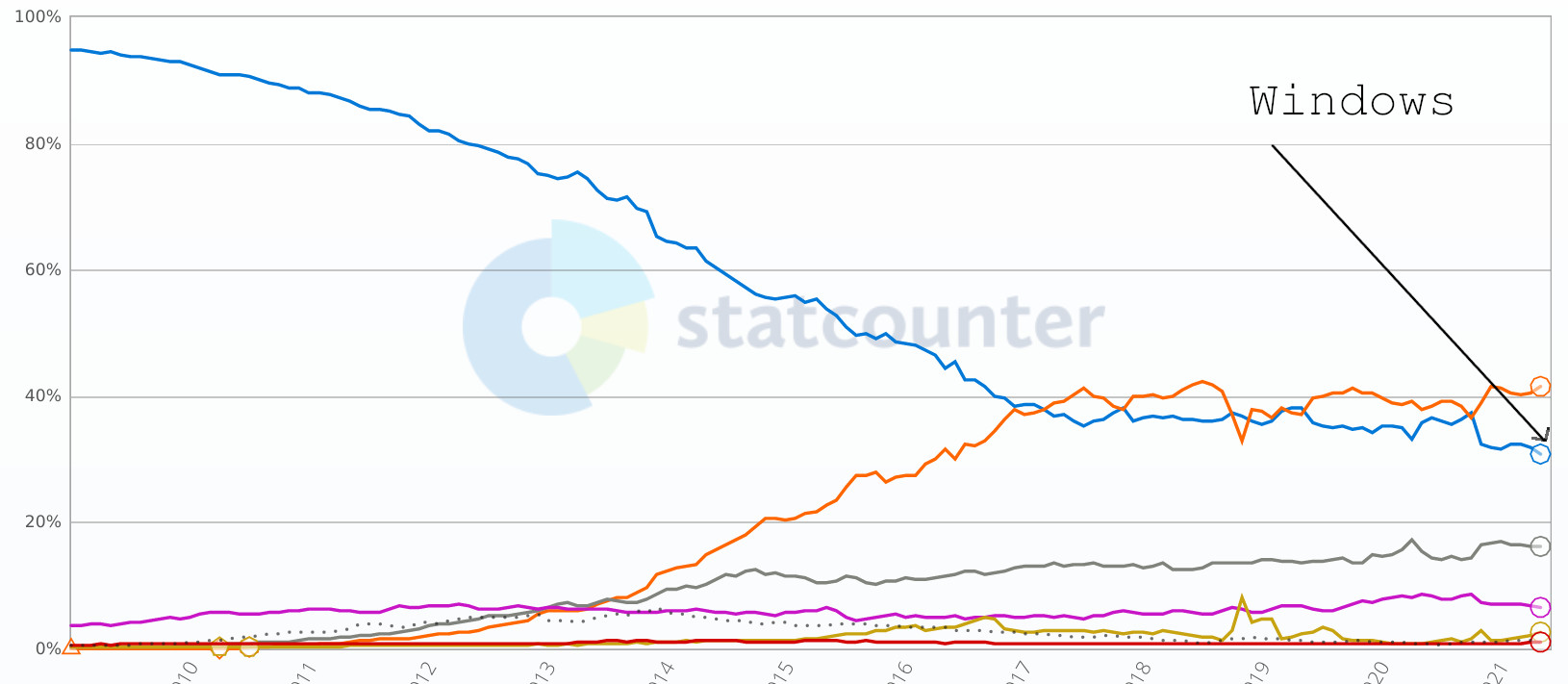

THE growth of GNU/Linux continues apace. Not too fast, not an overnight revolution, but we're getting there. In the server, GNU/Linux has already won the market. In phones and mobile/portable devices? See the graph above (updated as of the start of June). According to this, Android, which contains Linux, is the most dominant operating system. That same data source says that on laptops and desktops GNU/Linux was at about 5% last month (GNU/Linux 'proper' exceeding the market share of Chrome OS). Climbing fast, whereas Apple and Microsoft continue to move down...
"Let's keep vigilant and not treat the whole thing as a "market share" sport. We need to think beyond such superficialities."But let's not get 'too' excited and focus on operating systems alone. If people move to GNU/Linux just to play some Steam games (DRM), then what? Are we really accomplishing all that we wanted?
Software freedom isn't just a battleground of platforms; many use Web browsers that are Free software, some kind of hybrid, or even something with DRM in it (even Mozilla Firefox). In 2021 we need to remember the original goals and steer the debate in the right direction. Saying things like "big companies now release some code" and hence "Open Source has won" actually says a lot about the goals of "Open Source"... it's perfectly happy with proprietary software monopolies as long as they slap some code at a proprietary software monopoly called GitHub.
The battle isn't being lost, but we're already seeing the next wave of attacks on the FSF (earlier today in GCC). Let's keep vigilant and not treat the whole thing as a "market share" sport. We need to think beyond such superficialities. ⬆